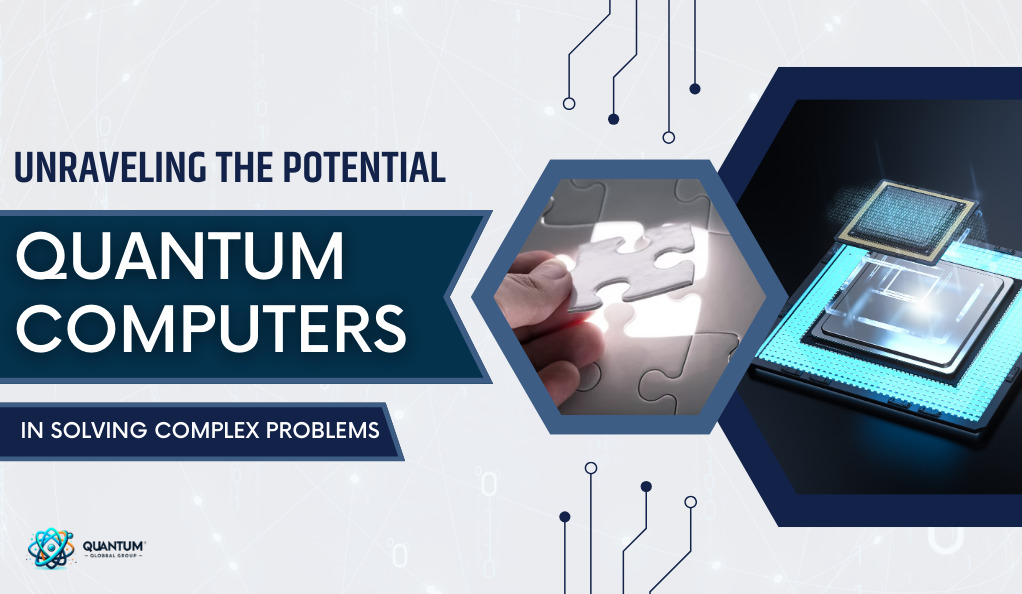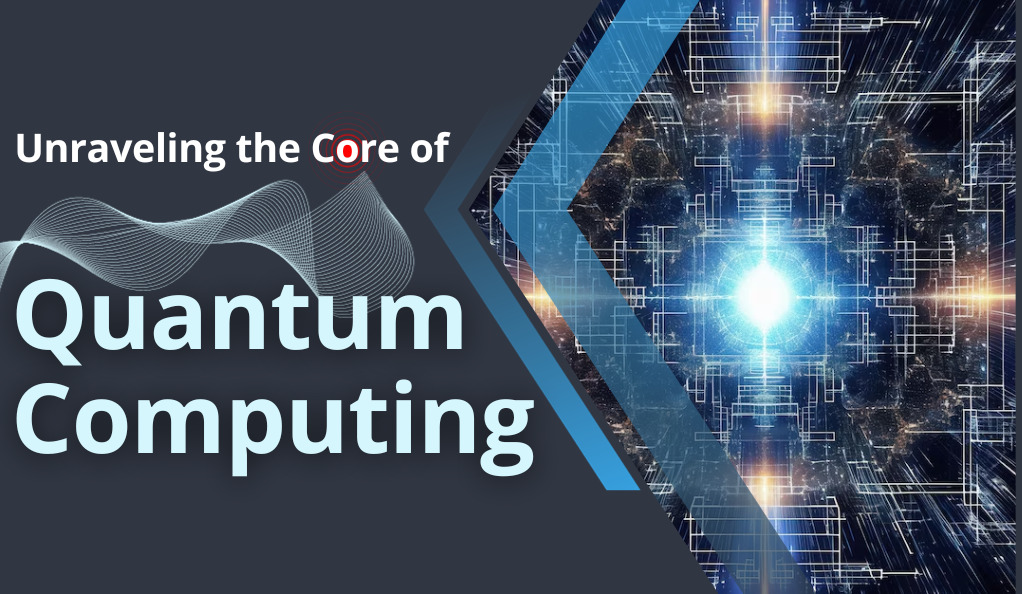Quantum computing is a revolutionary field of study that seeks to harness the unique and often counterintuitive properties of quantum mechanics to process information in ways that classical computers cannot. At its core, quantum computing is not just about faster computation but about fundamentally rethinking how computation is done at the most basic levels.
What is Quantum Computing?
Quantum computing is a type of computation that makes use of quantum-mechanical phenomena, such as superposition and entanglement, to perform operations on data. Unlike classical computers, which use bits as the smallest unit of data (that can be either 0 or 1), quantum computers use quantum bits or qubits. A qubit can be in a state of 0, 1, or any quantum superposition of these states. This means they can perform many calculations at once, making them potentially much more powerful than classical computers for certain tasks.
| Aspect | Classical Computers | Quantum Computers |
|---|---|---|
| Operating Principle | Operate with bits | Operate with qubits |
| Basis States | Binary (0 or 1) | Superposition of 0 and 1 |
| Superposition Capability | Not applicable | Yes |
| Computing Speed and Efficiency | Linear | Faster and more efficient for certain tasks |
The Power of Superposition and Entanglement
Two of the most intriguing properties of quantum mechanics that quantum computers leverage are superposition and entanglement.
- Superposition: Unlike classical bits, qubits can exist in both 0 and 1 simultaneously through superposition, enabling quantum computers to explore multiple solutions at once, resulting in faster computations.
- Entanglement: Entangled qubits are interdependent, regardless of distance, giving quantum computers a unique way to link and harness computational power beyond classical bits.
The Potential of Quantum Computing
Quantum computers, with their unique quantum mechanics properties, can tackle currently unsolvable problems like rapid number factoring for cryptography and accelerate tasks in drug discovery, financial modeling, and climate modeling due to their speed and data-processing capabilities.
The Quantum World: Particles, Waves, and Superposition
Quantum mechanics introduces a world that is vastly different from our everyday experience, governed by rules that can seem almost fantastical. At the heart of quantum mechanics, and by extension quantum computing, are the dual concepts of particles and waves, as well as the phenomenon of superposition.
Particles and Waves: A Duality
- In the quantum world, particles like electrons exhibit both particle-like and wave-like behavior.
- This duality is illustrated by the famous double-slit experiment.
- Wave-particle duality is a fundamental aspect of quantum mechanics.
- It challenges our classical intuitions about the nature of particles.
Superposition: The Heart of Quantum Computing
Superposition is a principle that allows particles to exist in multiple states at once. For a quantum computer’s qubits, this means they can be in a superposition of both 0 and 1 simultaneously, rather than being restricted to a single state as classical bits are. This property is what allows quantum computers to process a vast number of possibilities at once, providing their potential for unparalleled computational power.
Entanglement: A Quantum Connection
Entanglement is another quantum phenomenon where particles become interconnected and the state of one instantly influences the state of the other, regardless of the distance between them. This creates a level of correlation between entangled particles that is not possible in classical systems. In quantum computing, entanglement is used to link qubits in complex ways, enabling new forms of computation.
The Implications for Computing
The implications of these quantum phenomena for computing are profound. The ability of qubits to exist in superpositions allows quantum computers to perform many calculations simultaneously, while entanglement enables new forms of computation that are not possible with classical computers. These properties provide the potential for quantum computers to solve certain types of problems much more efficiently than classical computers can.
Qubits: The Building Blocks of Quantum Computing
Qubits, or quantum bits, serve as the fundamental units of information in quantum computing, analogous to bits in classical computing. However, their behavior is governed by the principles of quantum mechanics, setting them apart from their classical counterparts.
Understanding Qubits
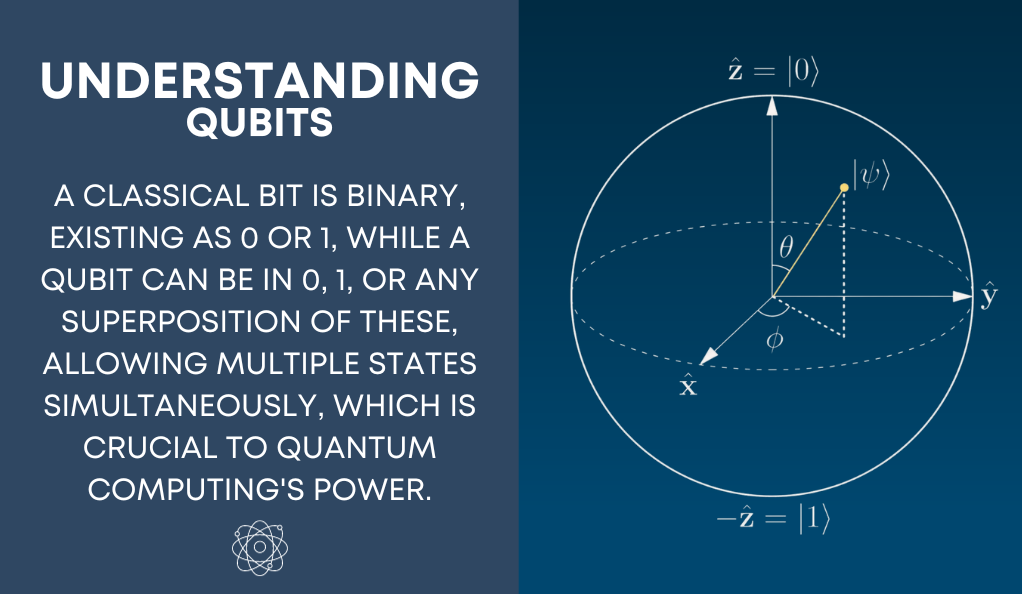
A classical bit is binary and can exist in one of two states: 0 or 1. A qubit, on the other hand, can exist in a state of 0, 1, or any superposition of these states. This means that a qubit can be in multiple states at once, a property that is central to the power of quantum computing.
Superposition States and Measurement
When a qubit is in a superposition state, it exists in a combination of both 0 and 1 states. However, upon measurement, the qubit collapses to one of its basis states (0 or 1), and the probability of each outcome is determined by the superposition state prior to measurement. This probabilistic nature of qubits introduces a level of uncertainty but also opens up new possibilities for computation.
Manipulating Qubits
Quantum gates are used to perform operations on qubits, changing their states and creating entanglements between them. These gates are the quantum equivalent of classical logic gates, but they operate in a fundamentally different way, taking advantage of the principles of superposition and entanglement.
Challenges in Qubit Stability
- One significant challenge in quantum computing is the stability of qubits.
- Qubits are highly sensitive to their environment.
- Any interaction with the environment can lead to a loss of their quantum state.
- This loss of quantum state is known as quantum decoherence.
The Role of Qubits in Quantum Computing
Qubits are at the heart of quantum computing, providing the ability to perform complex computations that are beyond the reach of classical computers. Their unique properties enable quantum computers to process information in parallel, solve certain problems more efficiently, and explore new realms of computation.
Quantum Algorithms and Speedup
Quantum algorithms are designed to take full advantage of the unique properties of qubits, providing solutions to problems that are currently intractable for classical computers. These algorithms leverage superposition, entanglement, and quantum interference, leading to quantum speedup for specific computational tasks.
Quantum Speedup: A Paradigm Shift
Quantum speedup refers to the potential of quantum algorithms to solve certain problems significantly faster than the best-known classical algorithms. This speedup does not apply universally to all computational tasks but is particularly pronounced for specific types of problems.
Famous Quantum Algorithms
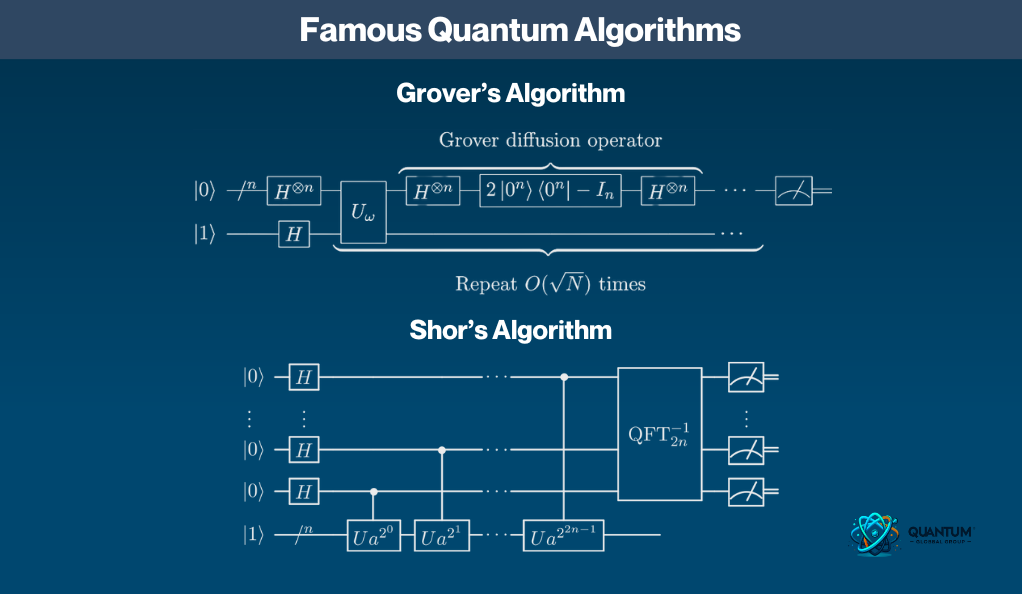
- Shor’s Algorithm: Perhaps the most famous quantum algorithm, Shor’s algorithm, can factor large numbers exponentially faster than the best-known classical algorithms. This capability has profound implications for cryptography, particularly for breaking widely used encryption schemes based on the difficulty of factorization.
- Grover’s Algorithm: This algorithm provides a quadratic speedup for unstructured search problems. While the speedup is less dramatic than Shor’s, it demonstrates quantum advantage for a broader class of problems.
Quantum Parallelism: The Key to Speedup
Quantum parallelism arises from the ability of qubits to exist in superposition states, allowing quantum computers to evaluate multiple possibilities simultaneously. This parallelism is a key contributor to quantum speedup, enabling quantum algorithms to explore vast solution spaces more efficiently than classical algorithms.
Challenges and Limitations of Quantum Computing
While quantum computing holds immense potential, it is also a field fraught with significant challenges and limitations. The very properties that give quantum computers their power also make them delicate and difficult to manage.
Technical Challenges in Quantum Computing
- Quantum Decoherence: Qubits are sensitive to their environment, causing quantum decoherence, a major quantum computing challenge. Researchers work on minimizing it to protect qubits’ fragile quantum states.
- Error Correction: Quantum computing’s probabilistic nature and qubit sensitivity to decoherence make error correction crucial. Developing efficient methods is an active research area.
- Scalability: Creating a large-scale, low-error quantum computer with many qubits is a major technical and engineering challenge.
Limitations of Quantum Speedup
- Not Universal: Quantum speedup is not universal and does not apply to all computational tasks. For some problems, classical algorithms remain more efficient than their quantum counterparts. Identifying the problems for which quantum computing provides a significant advantage is an ongoing area of research.
- Resource Intensive: Quantum computers are resource-intensive, requiring extremely low temperatures and high levels of isolation from the environment. These requirements make quantum computers complex and expensive to build and maintain.
The Current State of Quantum Computing
Quantum computing is still in its infancy, with practical, large-scale quantum computers yet to be realized. The field is advancing rapidly, but there are still many technical hurdles to overcome. Current quantum computers are primarily experimental, serving as testbeds for researchers to develop and refine quantum algorithms and hardware.
The Future and Applications of Quantum Computing
Quantum computing is poised to revolutionize numerous fields, offering new capabilities and efficiencies that are unattainable with classical computers. As the technology matures, its impact is expected to be profound and far-reaching.
Potential Applications of Quantum Computing
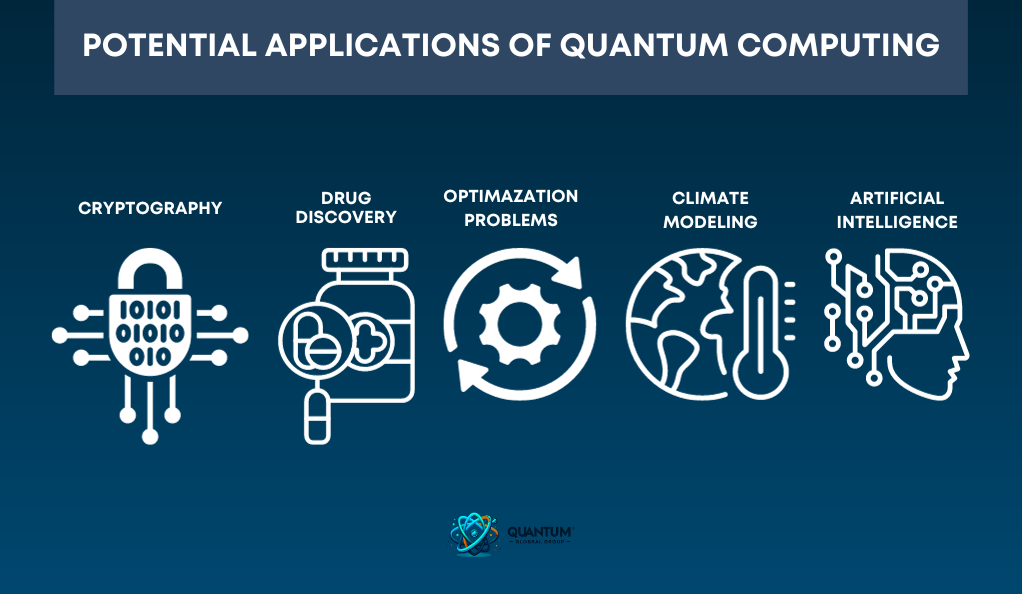
- Cryptography: Quantum computers have the potential to break many of the cryptographic schemes currently in use. However, they also enable new forms of secure communication through quantum cryptography.
- Drug Discovery: The ability to simulate complex molecular interactions at a quantum level could transform drug discovery, leading to the development of new medications and treatments.
- Optimization Problems: Quantum computers are well-suited to solving complex optimization problems found in logistics, finance, and manufacturing, potentially leading to more efficient resource allocation and cost savings.
- Climate Modeling: The immense computing power of quantum computers could be used to create more accurate and detailed climate models, helping to better understand and address climate change.
- Artificial Intelligence: Quantum computing could accelerate machine learning algorithms, leading to faster advancements in artificial intelligence.
Overcoming Technical Challenges
The realization of these applications depends on overcoming the significant technical challenges that currently limit quantum computing. Advances in qubit stability, error correction, and scalability are crucial for the development of practical quantum computers.
The Quantum Computing Ecosystem
As the field of quantum computing advances, a growing ecosystem of startups, established tech companies, and research institutions is emerging. These organizations are investing heavily in quantum computing, contributing to rapid advancements in both hardware and software.
Ethical and Security Considerations
The advent of quantum computing also raises important ethical and security considerations, particularly in the realm of cryptography and data security. The potential for quantum computers to break existing cryptographic schemes necessitates the development of new, quantum-resistant cryptographic methods.
Conclusion: The Quantum Journey Ahead
Quantum computing is a frontier of innovation rooted in quantum mechanics, offering transformative potential across diverse fields like cryptography, drug discovery, and AI. Challenges like quantum decoherence and scalability are being addressed globally through collaboration and innovation.
As we approach a quantum revolution, preparation is key. This entails creating quantum-resistant cryptography, nurturing a skilled workforce, and addressing ethical considerations.


